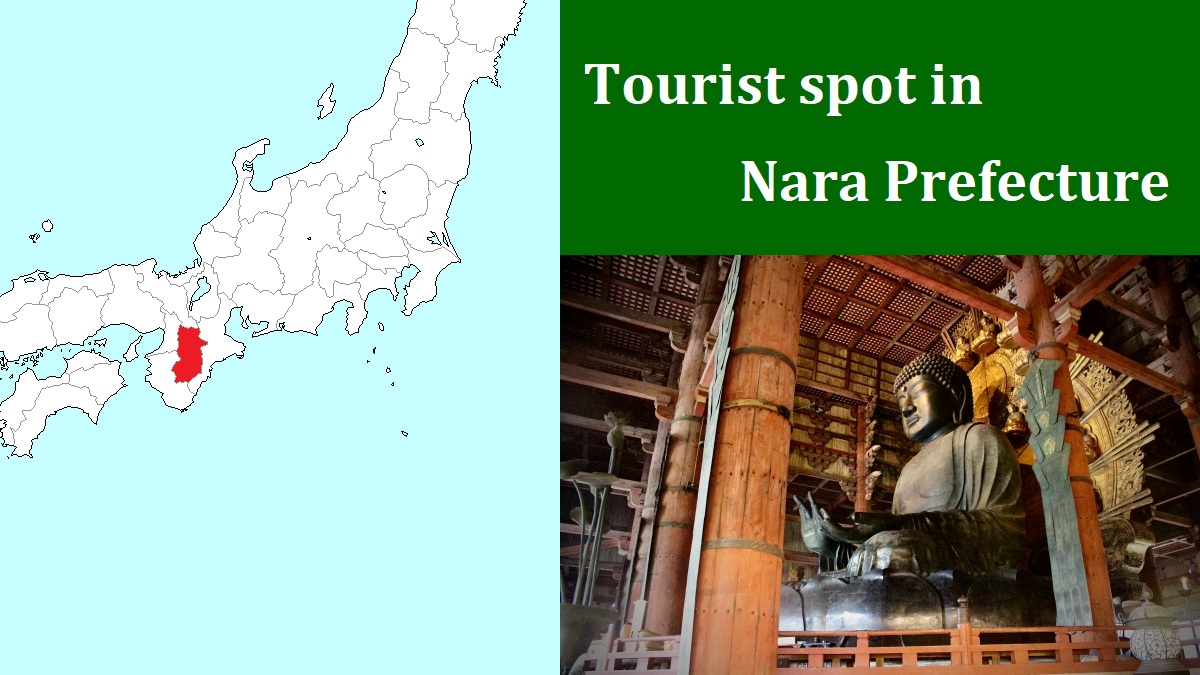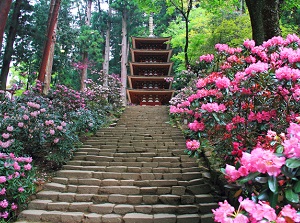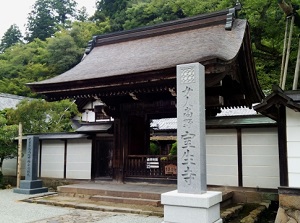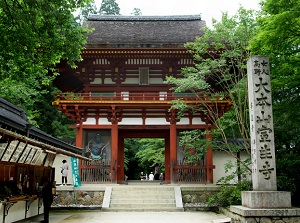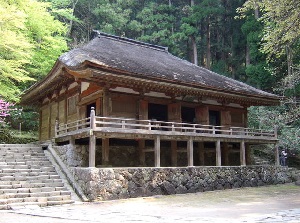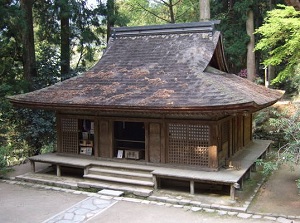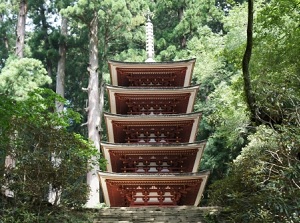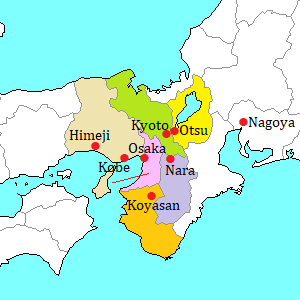Murouji temple [室生寺]
Murouji is a Buddhist temple of Shingon school which is one of major Japanese Buddhism.
It is located about 35 km south-east of Nara city, and is in the mountain between Nara and Mie Prefectures.
Hasedera temple is about 15 km west of this temple.
And Akame 48 Waterfalls in Mie Prefecture are about 5 km northeast of this temple as the crow flies.
(The distance of the road is about 20 km.)
Murouji temple is in the valley formed by Murou River.
In the 770s, when Prince Yamabe (He became Emperor Kanmu later) got ill, he was treated with a purification ceremony to live longer around this area.
Surprisingly, he had completely recovered.
So the government founded this temple.
The first priests were sent from Kofukuji in Nara city, so this temple had belong to the region of Kofukuji for a long time.
In 1698, Murouji became the temple of Shingon school.
At that time, this temple has allowed women to visit.
Because famous Koyasan (Kongobuji temple) in Wakayama Prefecture hadn't permitted it, Murouji has been called Nyonin-Koya (女人高野, Koyasan for women).
The temple is set up on the slope of mountain near Murou River, so we walk up many stone steps.
After passing through Niomon gate (仁王門), we reach Kondo and Mirokudo, first.
Kondo (金堂) was built around the late 9th century, and it is designated as a national treasures.
Mirokudo (弥勒堂) was built around the 13th century, but it had often been modified since that.
After we walk up from there, we reach Hondo (本堂, Main temple).
It was built in 1308, and is designated as a national treasures.
We walk up stone steps again.
At last, we reach Five-story Pagoda.
Five-story Pagoda (五重塔) is the symbol of Murouji and was built around 800.
It is the second oldest wooden five-story pagoda in Japan, after the pagoda in Horyuji.
The height is about 16 meters, and is relatively small as five-story pagoda.
In 1997, the strong wind by a typhoon knocked down a high tree by this pagoda, and it broke the pagoda.
Fortunately, the central pillar and the main parts of the pagoda were kept safe, so this pagoda was repaired from 1999 to 2000.
When the recovery efforts were performed, Nara Research Institute for Cultural Properties investigated the age of the woods of the pagoda with dendrochronology.
They found that the woods were logged around 794.
How to get here
By Osaka Line of Kintetsu Railway, get off at Murouguchi-Ono station.
About an hour from Osaka-Uehonmachi, about 22 minutes from Yamato-Yagi (Transfer station from Nara, Kyoto).
Then, by route bus, about 15 minutes from the station.

